#History book
Text

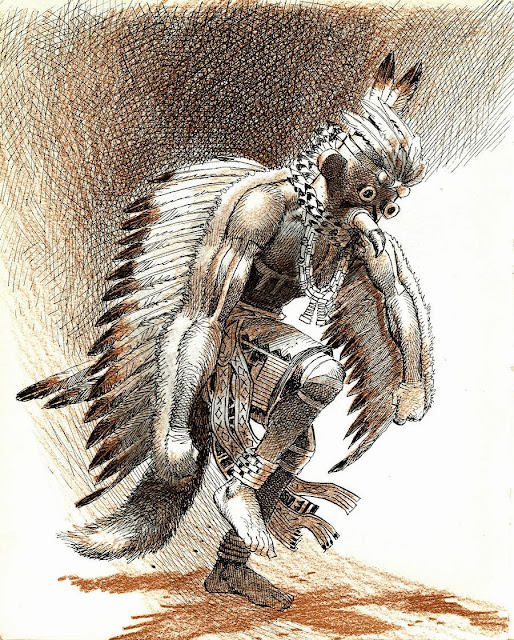
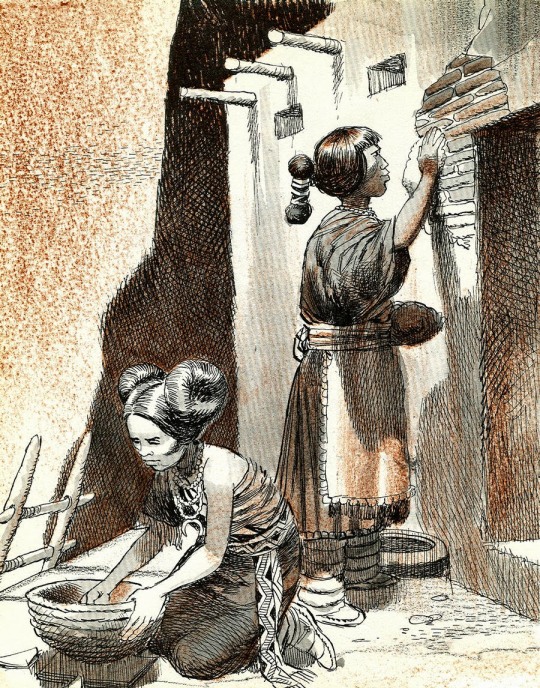
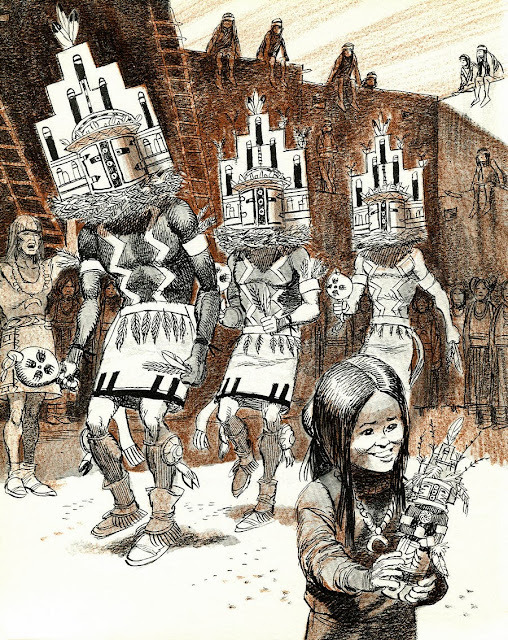

1965 Step-Up Book
19 notes
·
View notes
Text

The Lost Wolves of Japan, by Brett L. Walker, 2005
A holiday gift I've yet to read
#my library#The Lost Wolves of Japan#Brett L Walker#2005#2000s#wolf book#japanese wolf#history#history book#this is boutta expose how horrible i am at reading through my books oops ive got a lot of holiday gift books i havent done more than#lightly flip through
14 notes
·
View notes
Text
professor mcfell received a master's degree in cuntology with a concentration in motherlogical studies and now teaching sly101 introduction to slaysian studies at the university of servington

9 notes
·
View notes
Text
FINALLY!
I got both books of Cassius Dio spanning Augustus to Domitian. YAY!
9 notes
·
View notes
Text
So, it's been a while, but some of you may rember I write book reviews for Paralibrum occasionally. This one is from a while back but has just gone live: MAGIC IN MERLIN'S REALM: A HISTORY OF OCCULT POLITICS IN BRITAIN, by Dr Francis Young.
I love this book because it upends a chunk of modern dogma that 'magic' was solely fringe, and not something that has been alongside and intertwined with politics and power of all stripes - from the rebel to the monarch- recorded for over a thousand years.
By using the figure of Merlin as created by Geoffrey of Monmouth, Young provides a lens for us to understand that the idea of the magical practitioner was not confined to solely peripheral figures such as the proverbial witch on the edge of the village but that the image of the magus is its double, found at the heart of mediaeval, early modern, and even modern politics – often at the heart of British court life. As Young points out, however, court life does not necessarily mean at the monarch’s right hand – yet in some cases, British monarchs deliberately cultivated the image of a Hermetic magus:
As much as masques and architecture, the temporary architecture and elaborate decorations which accompanied Stuart royal processions in London constituted ‘a form of ceremonial magic centred on the image of the monarch as the sun’. (loc. 5764)
With Merlin comes Arthur, the rightful, legitimate king of the Britons. This is something Young makes abundantly clear – that several monarchs and dynasties have used the mythological grounding of Arthur, Solomon, and the persona of a Hermetic magus, as proof of legitimacy in the face of rebellion or political unrest. Yet, as he repeatedly shows, even at the most cynical, such marriages of political, mythological and occult power were used because people believed in magic. It was part of the worlding performed – its imagery operated in a “cult of the visual”, which was for, at least the Tudors, also a “cult of chivalry […] a cult of occult wisdom” with ‘“a dark side [which] was the potential magical misuse of pictures of the monarch. Elizabethan culture was preoccupied with double meanings, so that symbols (like the Tudor rose, itself a symbol of secrecy as well as a dynastic badge) were frequently suffused with occult power and significance.” (all loc. 3822)
Such things reach further back: the Norman kings promoted Geoffrey of Monmouth’s Merlin because he prophesied their coming, allowing them to position themselves as just one more proper phase in the history of Britain. Further, Young highlights that William I himself is recorded as “engaging a female magical practitioner” against Hereward in the earliest record of a monarch employing a practitioner. This raises the idea that the Normans’ reliance on Merlin and his prophecies meant that “their own self-representation effectively depended on an occult tradition.” (loc. 2355). Rather than Arthur, however, it was new shapes of knowing and knowledge from the Islamic world – preservations and iterations on, and of, Hebrew, Graeco-Roman, and Egyptian understandings – which began to move more strongly into the worldings of magic in Britain post-Conquest.
13 notes
·
View notes
Text
Book Review 9/60
Wolf Hall by Hilary Mantel
This made me fully insane.
It's a novel about Thomas Cromwell, about England's split with the Catholic Church and why and how, it's also written like someone's liveblog. It's the most impeccably researched book I've read in ages but it never forces the characters to speak #authentically.
I want to study Mantel like a bug, what the fuck.
5/5
#book review#book recs#history book#book book#i ALSO have maccullouch's biography of cromwell so look for that in the future
31 notes
·
View notes
Text




#step-siscon#age g4p#trs#gijinka#alfred#triangle#flowey#NOT undertale Flowey#flowey x alfred#aj#history book#aj x history book#chocolate bar#sweet corn#chocolate bar x sweet corn#corn cube#alfajor#corn cube x alfajor#alfacube#au
3 notes
·
View notes
Text
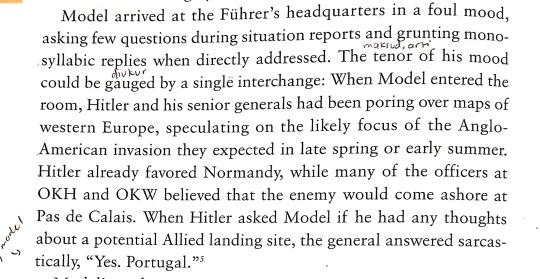
I'm laughing too hard hahaha this is so funny
#yEs PoRTuGaL#just model being model#please don't mind my writing#just translation of words i don't know#ok#walter model#generalfeldmarschall#heer#3rd reich#ww2 books#wwii books#war books#military book#history book#literasi ro#book
18 notes
·
View notes
Text
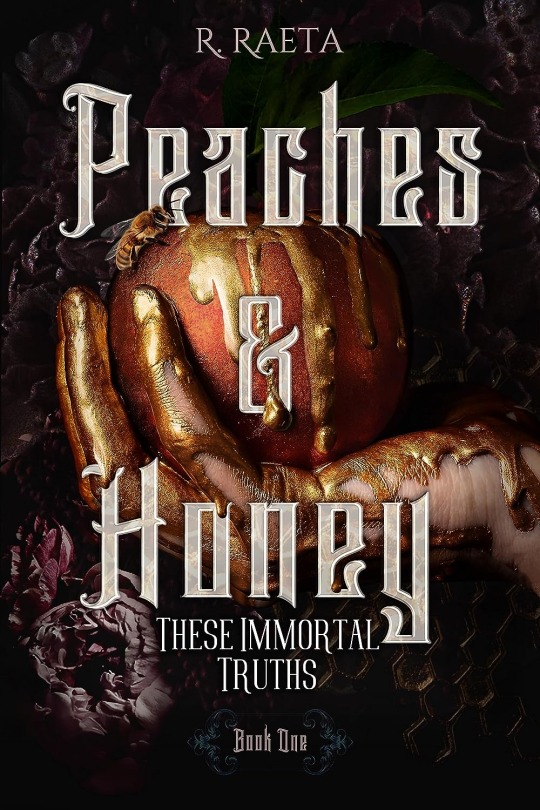
If I only had one sentence to describe this book, it would probably be “A love/hate letter to human mortality”. Although, “It’s freaking amazing” could also work.
First of all, I would say that there isn’t much of a plot, and it’s a character driven book, with humanity as one of its main characters. And that’s the magical beauty of it. We do follow one specific character, Anna, and her eight century long, life journey through immortality, granted by a god with the help of a peach. Simple enough.
However, eight hundred years is a long time. People change. The world changes. And the human race isn’t the most forgiving when it comes to hard times. Anna discovers this soon enough, and through every chapter we ‘re reminded of our own true history (disguised in this fantasy). Our wars, our hunger, our pain. Many important events that changed the lives of each and every person living at this very moment.
The book invites us to reflect on the bad that we’ve done, but also in the beauty of our nature. Of the precious gifts that we give for granted. On the smallest details that we carry in our everyday lives. There’s no light without some darkness, and we live through a careful balance of both. Anna is the messenger of this letter addressed to us.
But of course, there’s more laced into it, as is the romance Anna gets enveloped by through the years, but that felt more like a secondary trait of the book. Still, it was sweet watching it develop little by little.
All in all, the writing is delicious, the message is powerful, and the characters are relatable. Absolutely loved it.
4 notes
·
View notes
Text
‘Richard III: A Failed King?’ by Rosemary Horrox
These Penguin monarch short biographies are really helpful and concise, especially when you’re not familiar with the monarch or period. They’re very good introductions to the reigns and monarchs.
One thing I find slightly off putting about these books is that there is very little on the consorts. For example, in this book I think there are only 4 mentions of Anne Neville in this book despite her…
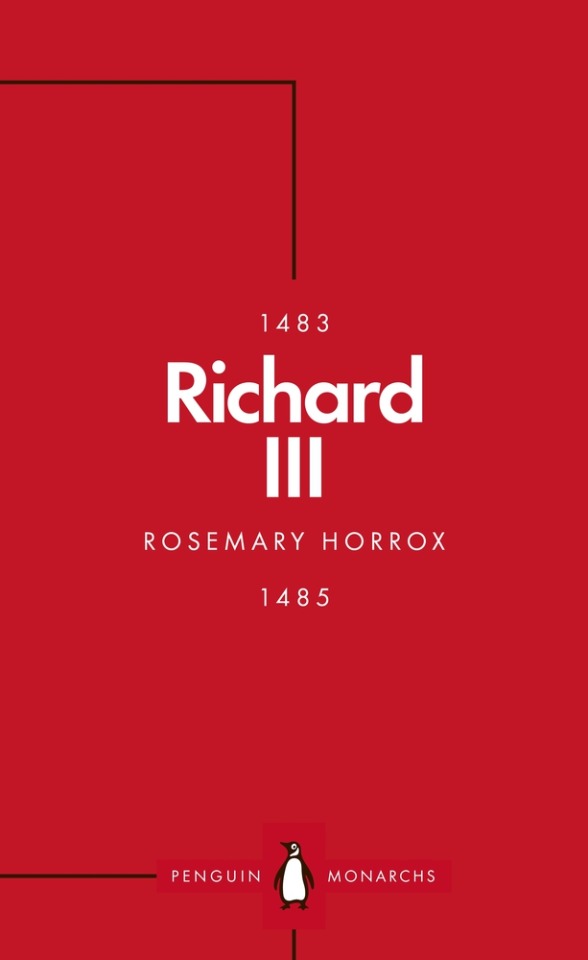
View On WordPress
#Biography#Book#Book Review#Historical#Historical Biography#History#history book#penguin monarchs#Review#Richard III#rosemary horrox#Wars of the Roses
2 notes
·
View notes
Photo
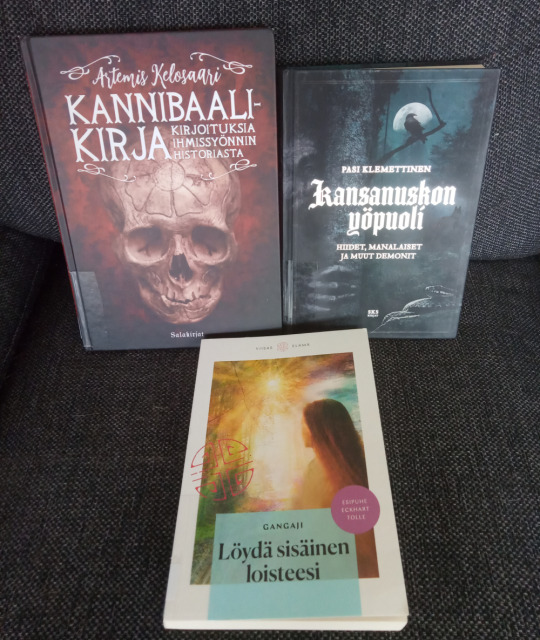
It seems I can’t borrow any books from between these :’D Books from left to right:
“The book of Cannibal: Writings of the history of cannibalism.” - Artemis Kelosaari, “The Night Side of Folk Belief: Hiidet, Manalaiset and other Demons.” - Pasi Klemettinen, “Find Your Inner Shine” (Eng.Vers. “The Diamond in Your Pocket”) - Gangaji.
#Photo#books#neis books#cannibalism#history book#spiritual stuff#folklore#demons#monsters#spirits#I've borrow that cannibalism and that demon book once before#but I borrowed them again ahah :'D#But yeah my books are either self help ones#or dark monster / history ones
2 notes
·
View notes
Text
i hate that we know how many times Rhaenyra slept with her husband but we don't know exactly when Laenor and Harwin died.
"shortly after Harwin’s return to Harrenhal"
"While House Velaryon was still in mourning, Ser Laenor was murdered while visiting a fair at Spicetown by Ser Qarl Correy"
2 notes
·
View notes
Text
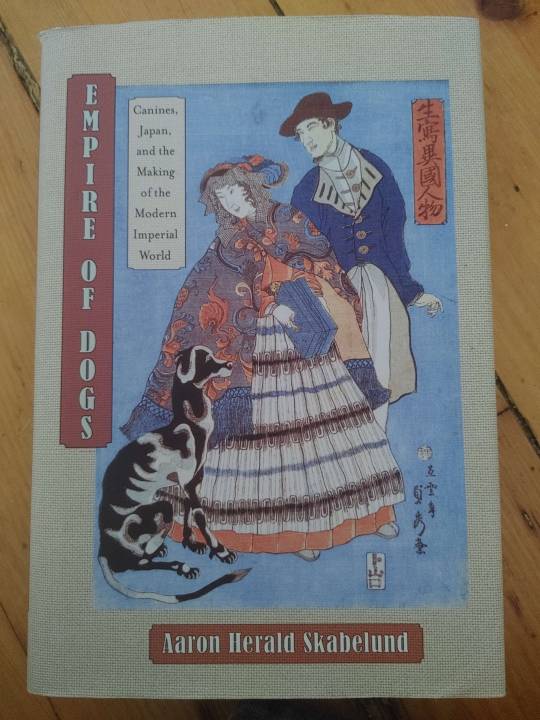
Empire of Dogs: Canines, Japan, and the Making of the Modern Imperial World, by Aaron Herald Skabelund, 2011
A holiday gift I have yet to read more than a chapter of
#my library#Empire of Dogs#Aaron Herald Skabelund#history#dog history#history book#dog book#japanese history#japanese dogs#nihon ken#2011#2010s
2 notes
·
View notes
Quote
When you see the [Bayeux] Tapestry in all its extensive, multicolored glory, you can appreciate in an instant why it is so important. This is not only an account of the Norman invasion of 1066; it is a window on to the world of the eleventh century.
Marc Morris, The Norman Conquest, (2013) p.2
#marc morris#norman conquest#norman#medieval#bayeux#bayeux tapestry#1066#battle of hastings#history book#11th century
15 notes
·
View notes
Text
So we did second Christmas today (Christmas with my dad’s side of the family) and I got a history book
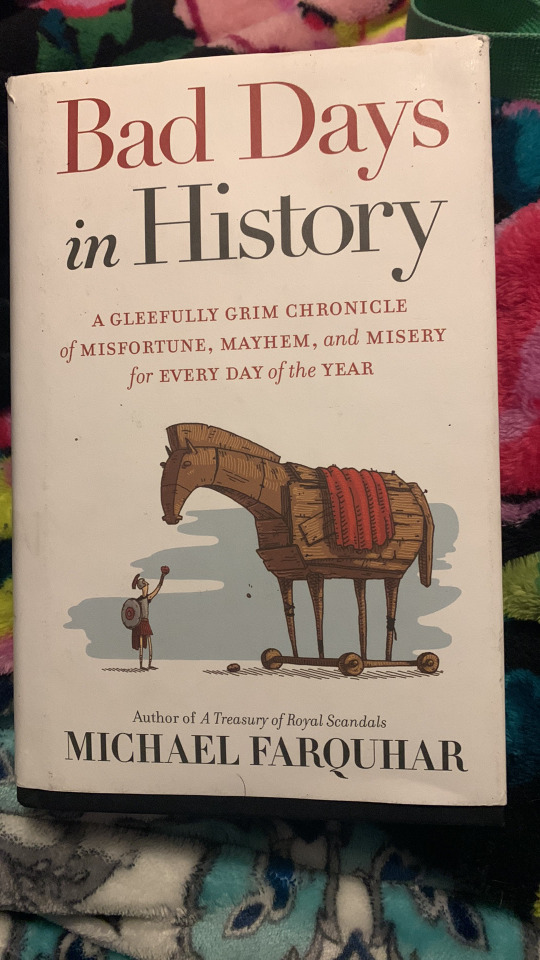
I love it very much and do in fact wish to read people’s birthdays to them
4 notes
·
View notes
Text
Book Review 4/60
The Roman Way by Edith Hamilton
I swear I would be going so much faster if literally any of these were good, but I am on 1 for 5 this year and that 1 was a collection of Tolkien short works. So.
Anyway this one gets a point for being from 1932 so I am significantly more generous about like, the lack of good source criticism or incorporation of archaeology because I am aware that archaeology and classics weren't talking to each other in the 30s. (Sidebar: Some absolutely Apollo's dodgeball prophecy in the conclusion.)
Unfortunately her conceit is using ONLY contemporary sources--so Livy can only be used to talk about Augustan Rome, Cicero about the late Republic (which tbf is all we really want Cicero for anyway), etc, which means it's a very scattershot book that skips over LARGE CHUNKS of Roman history (and ends with fucking Juvenal, like you're telling me there were ZERO Roman writers after 128????) and for unclear reasons anything written by Romans in Greek doesn't count, so there's nothing from Marcus Aurelius.
Which does very nicely highlight the problems with this sort of historical analysis, that being that you're left with Cicero's personal letters and some poetry*, and that's not...helpful. For most things. And I'm left wondering if you're using such limited sources, what is the reason to read this book? Like it's an interesting exercise for a graduate student but what is the lesson for the reader?
* Also some people I KNOW wrote about their own periods IN LATIN were inexplicably left out--nothing from either Pliny? Sallust??
2/5
#book review#history book#next book also rated 2 of 5 i should finish it tomorrow#this review took forever bc it's just like. i wasted weeks on this book it wasn't very good and i don't want to think about it anymore.#tada the end
2 notes
·
View notes